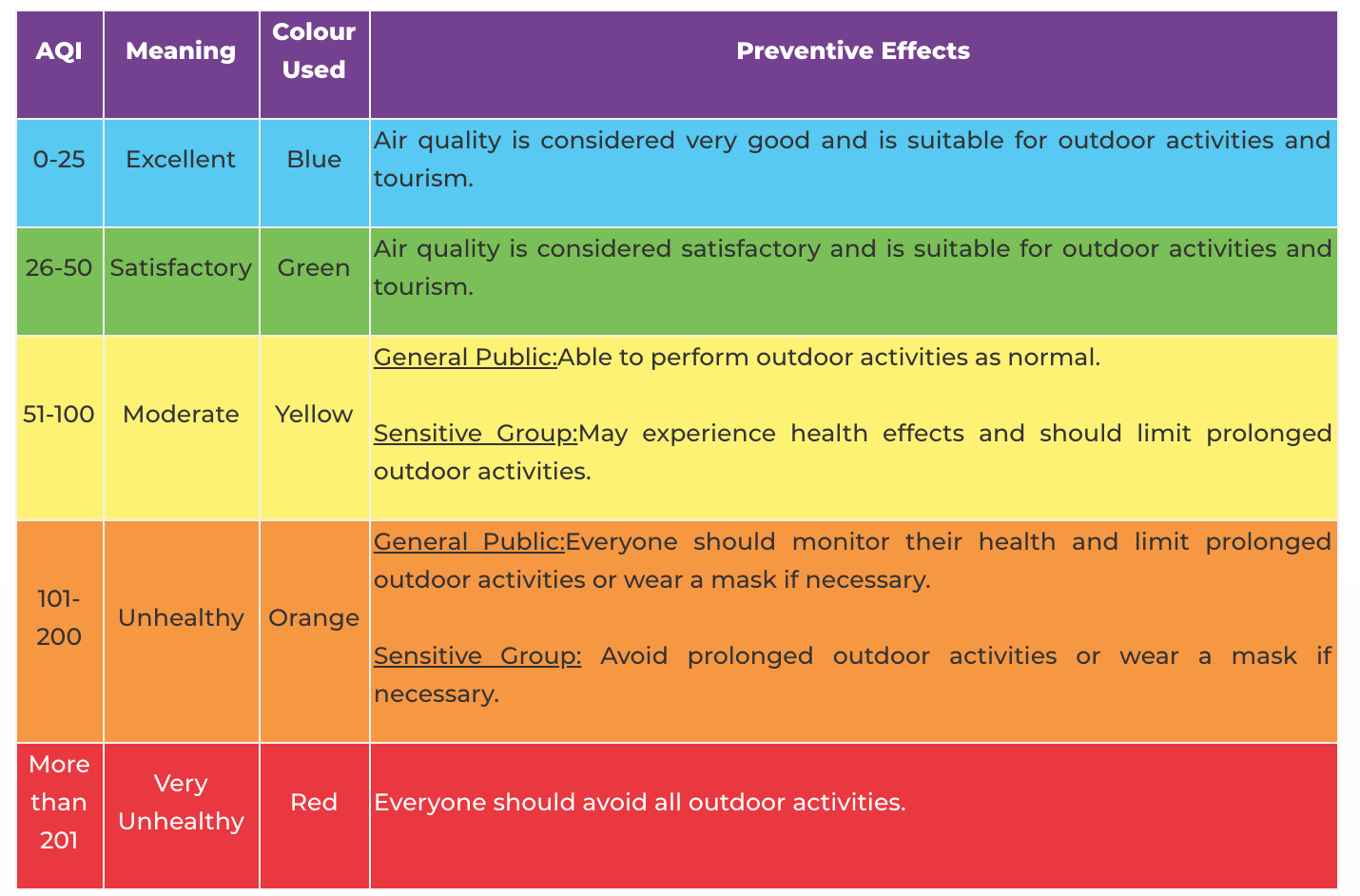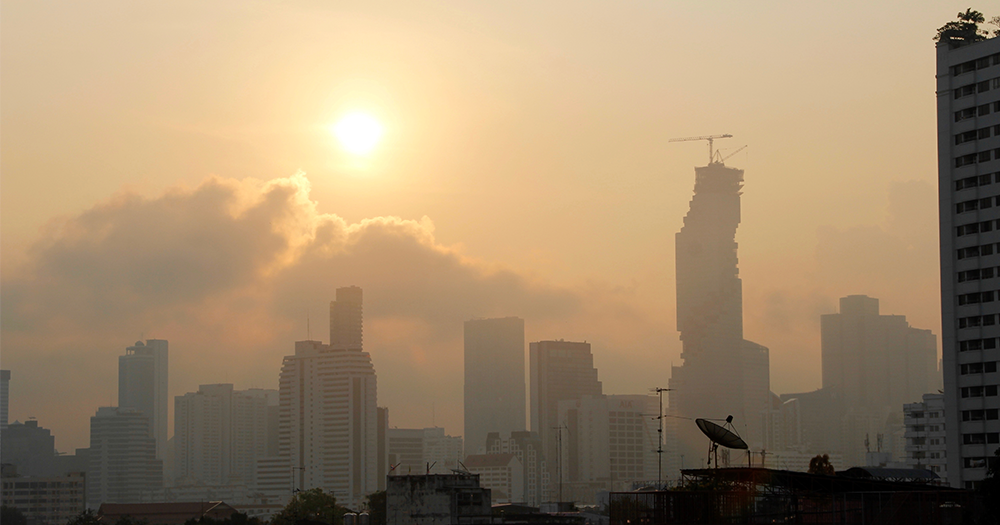Several Thai provinces including Bangkok are now covered in a stifling, toxic smog.
The situation is so intense, sales for N95 face masks and purifiers have gone through the roof, with local pharmacies struggling to keep up with demand.
Not sure what's happening or worried if your Thailand getaway might be impacted?
Here's what you need to know:
Why did this happen?
The smog is caused by a combination of factors.
Crop burning is ongoing in neighbouring countries and within Thailand itself.
The recent dry weather and atmospheric conditions exacerbated the situation, along with wide-spread air pollution within the urban areas from vehicles and factories.
Thailand has also been experiencing thermal inversion, which means polluted air particles stay close to the ground and are unable to disperse.
Low atmospheric pressure causes air mass to remain stagnant and unmoving. When there is no rain at all, the air becomes hot, still and very polluted.
Is it harmful?
Very.
The smog carries fine particulate matter with a diameter of less than 2.5 micrometres, which is also known as PM2.5.
Factories and vehicle emissions which use diesel fuel are the main sources of these pollutants.
They can enter through the lungs and into the bloodstream, and put people in the risk of heart disease, lung cancer and stroke.
According to a Channel NewsAsia article, the State of Global Air report states that more than 25,000 deaths in Thailand alone were caused by exposure to PM2.5 particles.
Will it stop soon?
This is not the first time Bangkok experienced such high levels of emissions. However, in past instances, the presence of winds helped to dissipate the smog and haze.
While the Thai government has deployed stop-gap measures such as drones and cloud seeding, these have had little effect in remedying the situation.
The smog might eventually subside when weather conditions change, but the PM2.5 particles are likely to remain unless Thailand tackles its root cause: pollution.
According to the Bangkok Post, the Thai government is considering several countermeasures.
This includes limiting the number of cars on the road according to their license plate number, banning vehicles that run on diesel engines in the affected vicinity and reducing opening hours for factories.
Is it safe for me to travel there?
Currently there is no advisory stating that Singaporeans should avoid Thailand.
However, the Ministry of Foreign Affairs (MFA) has issued an advisory on their website encouraging Singaporeans to moderate activities based on the quality of air, using Thailand's Air Quality Index (AQI).
Singaporeans can use the Pollution Control Department (PCD) website here, to see how severe the air quality is in the area that they are travelling to.
For easy reference, here's the translated matrix.
 Screenshot via MFA's website
Screenshot via MFA's website
Before travelling, you may want to keep yourself updated with the latest information from the MFA.
Do check the index to decide if you need to cut down on certain outdoor activities, equip yourself with items such as masks, or even reschedule a trip if necessary.
You may also wish to register your trip with the MFA here so that in the unlikely event of an emergency, officials will be able to contact and render assistance with greater ease.
Top image via Pxhere
If you like what you read, follow us on Facebook, Instagram, Twitter and Telegram to get the latest updates.
